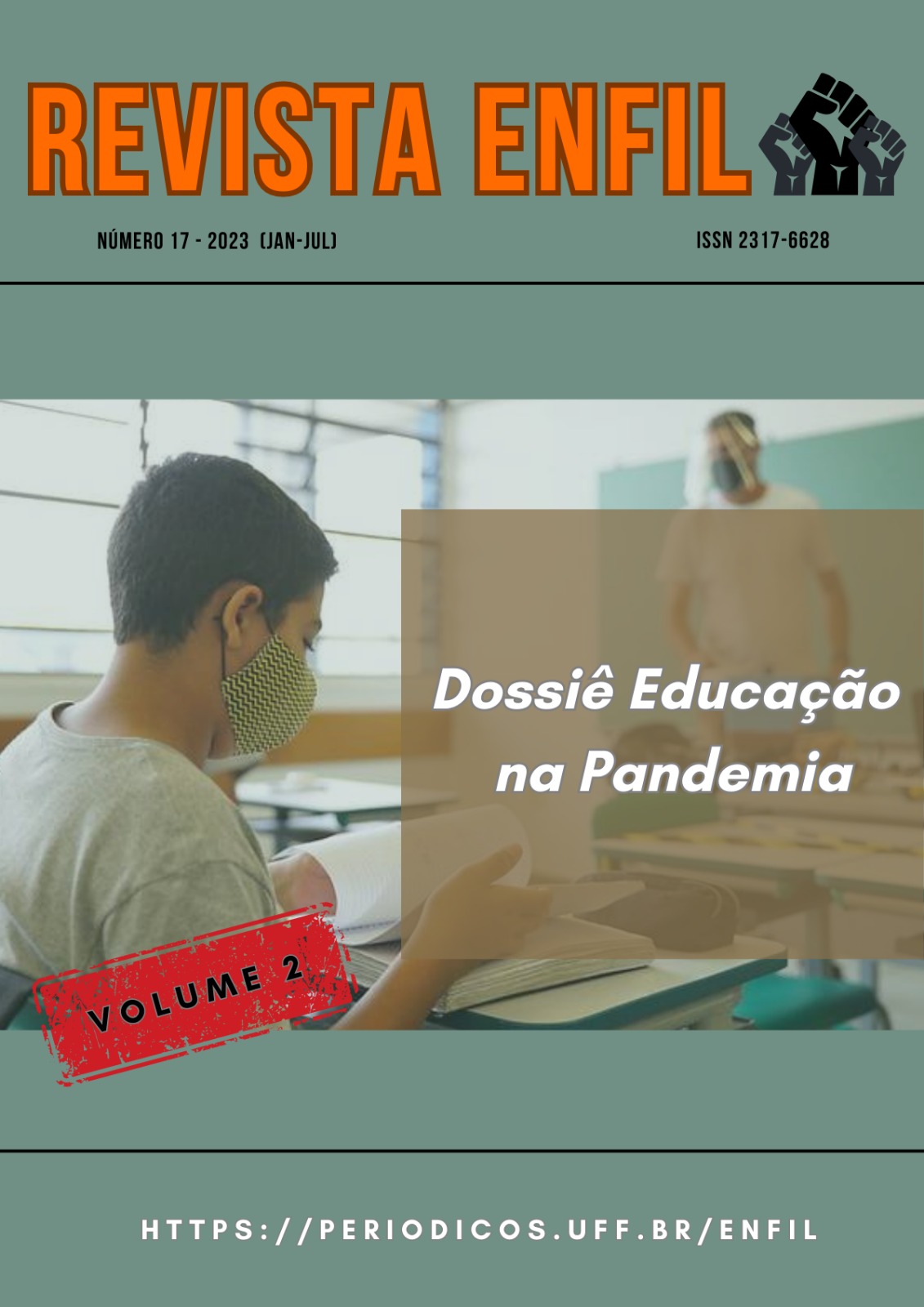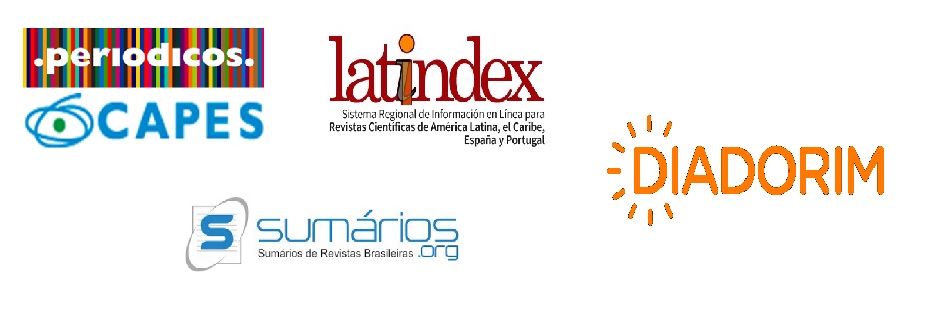APRENDER A ENSINAR EM UM CONTEXTO DE ENSINO REMOTO DE EMERGÊNCIA:
ESTÁGIO DURANTE A PANDEMIA DA COVID-19.
DOI :
https://doi.org/10.22409/enfil.v11i17.57403Résumé
No processo de formação de professores de língua estrangeira, as práticas são etapas essenciais para compor os processos de aprendizagem sobre o conhecimento das abordagens e métodos explorados ao longo das disciplinas. A partir desses processos, é possível conhecer a rotina das instituições, materiais didáticos, documentos formais e antecipar-se aos desafios que a vivência em sala de aula apresenta. Este momento é marcado pela complexidade para alunos e formadores. No ano de 2020, se soma esse desafio a realização dessas atividades em meio a uma pandemia que exigiu das instituições a implantação do Ensino Remoto Emergencial – ERE – (HODGES et al. 2020). Considerando a relevância desse momento histórico, este trabalho se propõe, por meio de um Relato de Experiência a descrever a regência em espanhol em um curso livre no contexto da pandemia de covid-19. Somado a este macro objetivo, propõe-se também analisar as potencialidades e limites das ferramentas utilizadas durante as práticas no ERE para o desenvolvimento das quatro habilidades linguísticas tendo em vista as dificuldades operacionais e pedagógicas de iniciar um estágio às pressas para garantir o cumprimento das regras institucionais. Para alcançar êxito nesse objetivo, os apontamentos do relato analisaram, criticamente, os fatos do estágio, guiados por referenciais teóricos sobre o uso das Tecnologias de Informação e Comunicação no contexto educacional (KENSKI, 2006; SANTAELLA, 2013). Da análise, foi possível detectar que, neste período, além das questões de metodologias e técnicas educacionais inerentes a este processo, houve uma grande demanda pelo desenvolvimento do letramento digital, adaptação ao ensino a distância e o stress causado por estas exigências, aliada aos medos e perdas que afetaram o estado emocional de todos os atores do processo ensino-aprendizagem. Compreender esse contexto de crise foi essencial para estudar esse fenômeno. A partir dessa percepção, foi possível observar o potencial das atividades remotas sem esquecer que esse processo necessitava de capacitações niveladoras de letramento digital, bem como adequações de infraestrutura e acessibilidade. Este trabalho é um ponto de partida para refletir sobre as experiências educacionais do período, que é recente e, portanto, requer mais análises e olhares para fins de pesquisa e possíveis redefinições de teorias e práticas educacionais.
Téléchargements
Téléchargements
Publié
Numéro
Rubrique
Licence
A Revista En_fil aceita manuscritos originais em português, italiano, espanhol e inglês. Se o manuscrito original for redigido em língua estrangeira, ele deve ser acompanhado da versão em português.
A Revista En_fil não cobra taxas referentes à submissão, à avaliação ou à publicação de artigos. Oferece acesso livre, gratuito e imediato a todos os leitores, independentemente de cadastramento no site.



